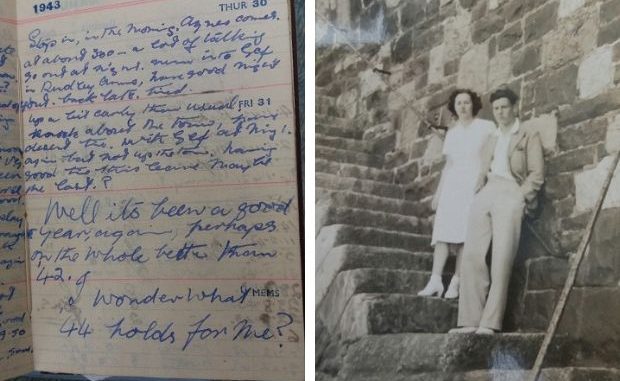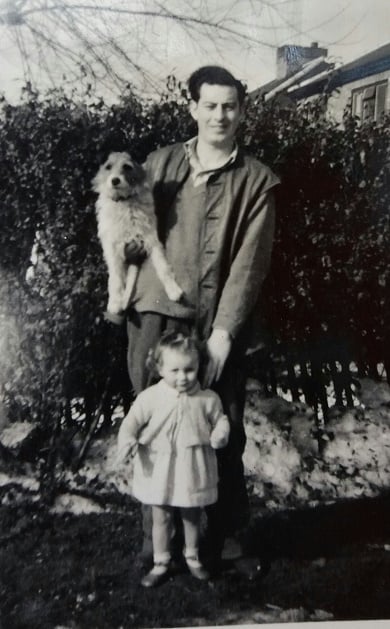
My uncle Charlie died on D Day. The telegram my grandma got said he never landed, and his body was never found. He was 25.
Listening to some of the veterans talking about their experiences brought home to me what he must have gone through. “I was terrified. It changed me.” “I saw men drowning around me, in the sea, weighted down by their heavy back packs.”
My three uncles, my mother’s brothers, were all involved in the war: Dick made tanks in a Midlands factory, Frank, the youngest, joined up at 17 and was in the Eighth Army in Africa and Italy.
Frank used to taunt Charlie with being a “toy soldier” because he wasn’t sent abroad. In Charlie’s letters he always said that maybe one day they’d find out what he’d been trained for. (It was secret at the time.)
Frank lived until 2013 and gave me Charlie’s letters. Among them were his diaries for 1943 and 1944.
He was no Anne Frank – this is a typical entry: “Pictures with Janet. Good!” “Football. WON. GOOD!” “Fish and chips. Good!”
It’s the life of a young man: football, girls, going to the pictures, above all food! My mother remembered Charlie as the joker of the family, laying claim to all the cream buns by telling his sisters he’d licked them all.
He worked on the railways, the Great Western, but football had been his life. He was a good player – he may have played for his home team Wolverhampton Wanderers if the war hadn’t intervened.
Charlie had trained for the invasion for a long time. He was based in East Kent for a while. Who knows, if he’d liked it enough perhaps he would have been my Kent uncle.
Instead he died. All that youthful energy suddenly wiped out. No wonder the surviving veterans are still horrified to remember what happened.

Frank came back wounded just after this and the family didn’t tell him about Charlie – he always wished they had as he went on asking what Charlie was up to, and thinking that he’d had a tougher time being shipwrecked off Malta.
As Frank grew older he began to hate war in all its forms, in particular the sentimentality associated with remembrance services. He hated patriotism: he’d been fighting against fascism and for a better life for ordinary people. He hated hierarchies having seen officers making appalling dangerous decisions. Above all he thought all conflict should be handled through diplomacy and nothing was worth the waste of young lives.
The Queen has thanked the veterans and said she will never forget the sacrifice that was made on D Day. She means people like my uncle Charlie.
Well, I’d rather have him alive, stealing cream buns into his dotage and perhaps living next door.
Charlie Wedge is commemorated in a war grave in Normandy but I commemorate him in the way my uncle Frank approved – opposing war in all its forms, marching for peace whenever I can and watching the dignitaries – not the men who actually fought – at D Day services with heart felt cynicism.

